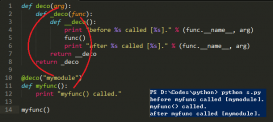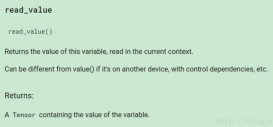本文实例讲述了Python找出文件中使用率最高的汉字的方法。分享给大家供大家参考。具体分析如下:
这是我初学Python时写的,为了简便,我并没在排序完后再去掉非中文字符,稍微会影响性能(大约增加了25%的时间)。
|
1
2
3
4
5
6
7
8
9
10
11
12
13
14
15
|
# -*- coding: gbk -*- import codecs from time import time from operator import itemgetter def top_words(filename, size=10, encoding='gbk'): count = {} for line in codecs.open(filename, 'r', encoding): for word in line: if u'\u4E00' <= word <= u'\u9FA5' or u'\uF900' <= word <= u'\uFA2D': count[word] = 1 + count.get(word, 0) top_words = sorted(count.iteritems(), key=itemgetter(1), reverse=True)[:size] print '\n'.join([u'%s : %s次' % (word, times) for word, times in top_words]) begin = time() top_words('空之境界.txt') print '一共耗时 : %s秒' % (time()-begin) |
如果想用上新方法,以及让join的可读性更高的话,这样也是可以的:
|
1
2
3
4
5
6
7
8
9
10
11
12
13
14
15
16
17
|
# -*- coding: gbk -*- import codecs from time import time from operator import itemgetter from heapq import nlargest def top_words(filename, size=10, encoding='gbk'): count = {} for line in codecs.open(filename, 'r', encoding): for word in line: if u'\u4E00' <= word <= u'\u9FA5' or u'\uF900' <= word <= u'\uFA2D': count[word] = 1 + count.get(word, 0) top_words = nlargest(size, count.iteritems(), key=itemgetter(1)) for word, times in top_words: print u'%s : %s次' % (word, times) begin = time() top_words('空之境界.txt') print '一共耗时 : %s秒' % (time()-begin) |
或者让行数更少(好囧的列表综合):
|
1
2
3
4
5
6
7
8
9
10
11
12
13
|
# -*- coding: gbk -*- import codecs from time import time from operator import itemgetter def top_words(filename, size=10, encoding='gbk'): count = {} for word in [word for word in codecs.open(filename, 'r', encoding).read() if u'\u4E00' <= word <= u'\u9FA5' or u'\uF900' <= word <= u'\uFA2D']: count[word] = 1 + count.get(word, 0) top_words = sorted(count.iteritems(), key=itemgetter(1), reverse=True)[:size] print '\n'.join([u'%s : %s次' % (word, times) for word, times in top_words]) begin = time() top_words('空之境界.txt') print '一共耗时 : %s秒' % (time()-begin) |
此外还可以引入with语句,这样只需一行就能获得异常安全性。
3者性能几乎一样,结果如下:
|
1
2
3
4
5
6
7
8
9
10
11
|
的 : 17533次是 : 8581次不 : 6375次我 : 6168次了 : 5586次一 : 5197次这 : 4394次在 : 4264次有 : 4188次人 : 4025次一共耗时 : 0.5秒 |
引入psyco模块的成绩:
|
1
2
3
4
5
6
7
8
9
10
11
|
的 : 17533次是 : 8581次不 : 6375次我 : 6168次了 : 5586次一 : 5197次这 : 4394次在 : 4264次有 : 4188次人 : 4025次一共耗时 : 0.280999898911秒 |
注:测试文件为778KB的GBK编码,40余万字。
希望本文所述对大家的Python程序设计有所帮助。















